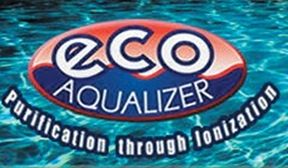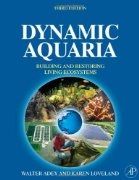Ok, so instead of totally derailing Jim's tank journal thread, I have created a new thread where we can discuss in theory and potentially by trial and error that the above hypothesis can be achieved. This will require some thorough research and testing by some or many. Perhaps this was already done before but when was the time the study was conducted, if even at all? Times have changed and along with it has technology.
Discuss.
Here are some discussions from Jim's thread that I have copy-pasted over for reference.
Discuss.
Here are some discussions from Jim's thread that I have copy-pasted over for reference.
denzil said:sfsuphysics said:2000 posts... way to go Jim. So how many posts before salt water touched your tank though?
Also take it from someone who doesn't like to do water changes, philosophical, ecological, and economical reasons, you can get away with smaller water changes, just need to make sure to keep the pollutants in check. Jim aiming for the entire cast of Finding Nemo in his tank however is taking it in a different direction... although I can't wait to see Bruce go in!
Hrm, isn't it theoretically possible to run them all on the same water without any water changes with the right equipment? That would be more sustainable IMO and the only addition of water would be from the ATO. Of course, I could be speaking blasphemy to the rest of you folks. >)
While it may be blasphemous, it's definitely more eco friendly to all but I'm not sure of the economics of it saving you money in the long run if it's going to require that much more equipment and media to maintain it.
sfsuphysics said:Water changes are all about removing pollutants and to some minor degree putting back in "trace minerals" what ever the hell they might be since you don't know if that magic bottle of **** brand "Essentials" are actually doing anything for your tank
Calcium, Alkalinity can't be kept up with water changes unless the salt mix you're using has more in it than you want (I think Salinty might be the one of the few out there that does this), it's basically a math problem, you start with X, you lose Y over a certain time averaging in by adding more X isn't going to get you to the original X value.
As for the pollutants there are certainly ways to keep on top of it. Fish free tank is an excellent way, no fish food, no fish wastes. However it's often hard to just stare at a coral tank without something moving in it. Jim mentioned a denitrator that's one way to deal with nitrates, a refugium where you actively harvest macroalgae is another way. I'm hesitant to say there's a full proof way to remove all pollutants without water changes, but then again water changes won't remove all pollutants either.
Don't think of it as blasphemous to do something different, it's not. And I'm sure most will agree with me when I say there's no single right way that you can run a reef tank. The only time I think it's fair to get on your case over something is if your method continuously fails (or has for others) and never shows prospect then maybe you're being hard headed with your approach
gimmito said:Great conversation regarding water changes. I recently read a post from a fellow hobbyist and FB friend named Dan Riggle. He's been in the hobby for many years and his corals are considered some of the nicest you will find (short of a Jason Fox or Steve Tyree name tied to it). Dan has tried various methods of carbon dosing, probiotics, etc. and has always comes back to water changes. I want to say he has a roughly 200+ gal reef set up that is primarily SPS dominated. He does large weekly water changes (Instant Ocean) and doses alk, cal, & mag accordingly...that's it.
You can checkout his reef in this months Coral Magazine by the way.
sfsuphysics said:I will concede that doing water changes is probably the most effective (assuming you do a significant amount) and easiest way to remove pollutants. Also you mention SPS dominated and that likely goes a long way. In my 125g softie dominated (and I'm talkin the weedy weeds too) which had only 4 fish in it, I would do water changes maybe a couple times a year.
Overall if you can be active at getting detritus out before it starts breaking down too much that includes cleaning out your sumpyou just be going one step better and keeping a clean tank.
gimmito said:Water changes a couple times a year ? Boy, you really don't like doing water changes !
Although, I can see getting away with it in a softie tank and a few fish.



